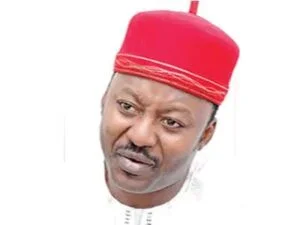Chief Martin Onovo, a former presidential candidate under the now-defunct National Conscience Party, has posited that a united opposition front is the only viable pathway to unseat the ruling All Progressives Congress (APC) and President Bola Tinubu in the 2027 general elections. Onovo, speaking in an interview with the News Agency of Nigeria, argued that no single opposition party possesses the strength to overcome the incumbent, emphasizing the necessity of a robust coalition to mount a successful challenge. He expressed his belief that such an alliance, if strategically executed and devoid of internal sabotage, stands a near-certain chance of victory, predicting a landslide win with a potential 99% of the vote.
Onovo, a staunch advocate for collaborative political action, cited his instrumental role in the formation of the Coalition of United Political Parties (CUPP), describing it as the largest coalition witnessed in Nigeria’s Fourth Republic. He firmly believes in the principle that “a united minority is stronger than a divided majority,” suggesting that the combined strength of opposition parties, when strategically aligned, can effectively overpower the ruling party, even if the latter enjoys a broader, yet fragmented, base of support. This conviction underscores his optimism about the potential success of a united opposition front in 2027.
The former presidential candidate expressed his qualified support for the coalition efforts spearheaded by former Peoples Democratic Party (PDP) presidential candidate, Alhaji Atiku Abubakar, and other political leaders, viewing their initiative as a crucial step towards achieving the desired unity amongst opposition forces. He urged these leaders to meticulously plan and execute their strategies, emphasizing that the success of the coalition hinges on their ability to maintain internal cohesion and avoid self-sabotage. Onovo warned that internal squabbles and power struggles within the coalition could undermine their efforts and pave the way for the APC’s continued dominance.
Turning his attention to President Tinubu’s performance since assuming office, Onovo offered a critical assessment, expressing concerns about the administration’s progress in addressing key issues such as security and the provision of basic necessities for the populace. He urged the president to prioritize these areas during the remainder of his first term, stressing the importance of tangible improvements in the lives of ordinary Nigerians. He emphasized that the president’s success will be measured not by political rhetoric or loyalty, but by concrete achievements in improving the welfare and security of the citizenry in both urban and rural areas.
Furthermore, Onovo advocated for a cabinet reshuffle, urging President Tinubu to prioritize competence and expertise over political loyalty when making appointments. He stressed the need for technocrats and individuals with proven track records in their respective fields to occupy key positions within the government, arguing that such appointments are crucial for effective policy implementation and the fulfillment of campaign promises. Onovo warned against the dangers of prioritizing loyalty over competence, asserting that such a practice ultimately undermines performance and hinders national progress. He emphasized that the president must create an ethical and performance-driven environment where meritocracy prevails.
In addition to his recommendations on security, welfare, and cabinet composition, Onovo called on President Tinubu to intensify the fight against corruption and address the widening inequality gap within the country. He argued that these issues are fundamental drivers of insecurity and social unrest, and that tackling them effectively is essential for achieving sustainable peace and development. He emphasized that a holistic approach, encompassing both security measures and socio-economic reforms, is necessary to address the root causes of these challenges and build a more equitable and secure nation. Finally, Onovo emphasized the importance of leadership and accountability, urging President Tinubu to take ownership of the challenges facing the nation and to demonstrate a clear commitment to addressing them effectively.


